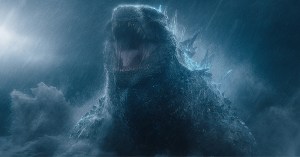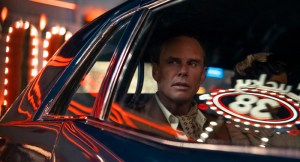Worst to Best: Ranking the Doctor Who Doctors
As Ncuti Gatwa prepares to make his return in the 2024 Christmas Special, we look back at the performances that contributed to the enduring series.
Updated: List updated to include Ncuti Gatwa and the other First Doctors.
While most long-time Doctor Who fans will avoid trying to rank the Doctors, the truth is that every Whovian has their favorites. As Ncuti Gatwa returns as the Time Lord with a penchant for weird fashions and boiled sweets in this year’s Christmas special, we thought it might be fun to take a look back at The Doctor through their regenerations and see who wore the part best. Of course, that opinion will vary depending on when a person discovers the show, their appreciation for the series writing backing the actor, or whims as capricious as The Doctor themselves.
19. Richard Hurndall (classic series, 20th Anniversary Special “The Five Doctors”)
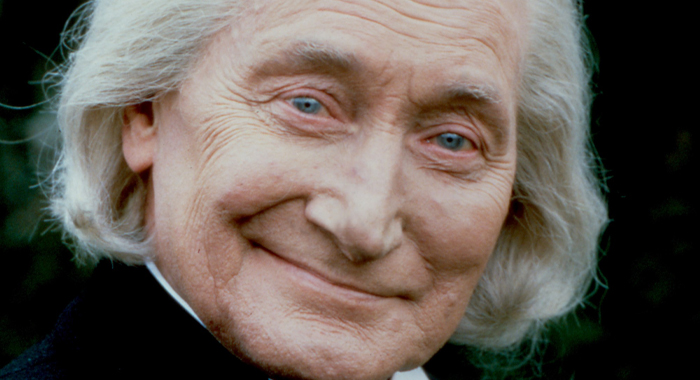
(Photo by ©BBC)
Known for: Claiming to be “the original” Doctor.
Highlight: Seemingly betraying his other selves to secure a victory.
To some extent, it is unfair to put Hurndall at the bottom of this list. He had the impossible job of recreating a previous actor’s performance instead of defining his own distinct Doctor. And with so much of First Doctor William Hartnell’s stories missing from the BBC archive in the 1980s, the actor could only grasp at the character’s more irascible traits. The gentler First Doctor, with the more caring hearts, is nearly absent — although a few moments do occur between Hurndall and The Doctor’s granddaughter, Susan Foreman (Carole Ann Ford). While the performance worked in 1983, it has become lesser across the years as fans obtained greater access to Hartnell’s stories and a second actor essayed the First Doctor.
18. David Bradley (An Adventure in Space and Time, New Series, “Twice Upon a Time” & “The Power of The Doctor”)
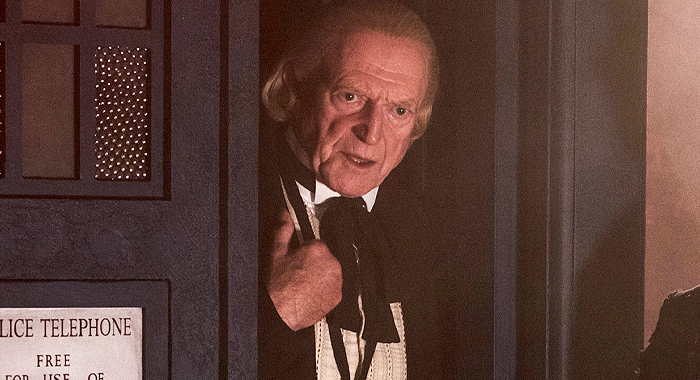
(Photo by Simon Ridgway/©BBC America)
Known for: Decrying his successor’s gadgets.
Highlight: Embracing the slow road to his twelfth (and thirteenth) incarnations.
Like Hurndall before him, Bradley also took on the difficult task of playing the First Doctor. But this time, the actor had the advantage of previously playing William Hartnell in An Adventure in Space and Time, a TV movie about the early days of Doctor Who. Adapting that performance to The Doctor leads to something closer to Hartnell’s performance while revealing his own flourishes. In “Twice Upon a Time,” The Doctor is nearing the end of his “first” life and, thus, Bradley plays him as more fragile than the previous actors. It allowed for the sweeter aspects of the original character to shine through even as Steven Moffat’s script for “Twice Upon a Time” calls out some of Hartnell’s more chauvinistic tendencies — if, perhaps, slightly out of proportion to the actual 1960s version of the Hartnell Doctor. Nonetheless, Bradley’s take on the part is generally successful and any chance to see him return — as he did in Jodie Whittaker’s final episode, “The Power of The Doctor” — is welcome. He appears low on this list, however, by virtue of limited screentime and, of course, not being a full incarnation in his own right.
17. Peter Davison (classic series, seasons 19-21)
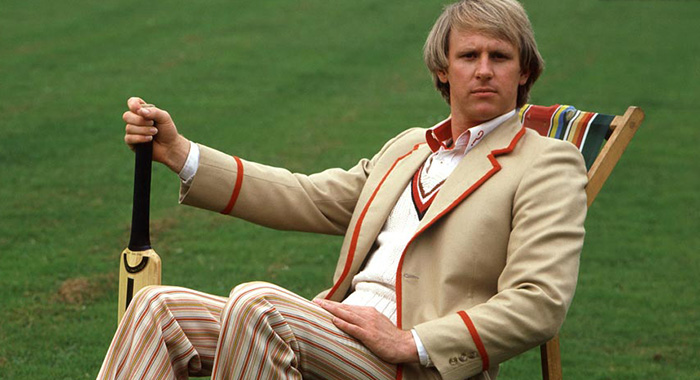
(Photo by BBC)
Known for: A sprig of celery on his lapel; breathlessness.
Highlight: Uniting his previous selves to defeat his old teacher in “The Five Doctors.”
While charming and affable, Davison faced the unenviable task of replacing Tom Baker after a seven-year reign. He also took over the part while appearing on two other BBC programs: the drama All Creatures Great and Small and the sitcom Sink or Swim. His era was marked by a stable of writers afraid of the storytelling complexity the show demanded and a producer looking to make the series more theatrical. Watching him in stories like “The Arc of Infinity” and “The Five Doctors,” he reveals a more vulnerable and thoughtful Doctor, but all too often, the rough scripts and overly lit sets illustrate a Doctor who was, unfortunately, unremarkable.
16. Colin Baker (classic series, seasons 21-23)
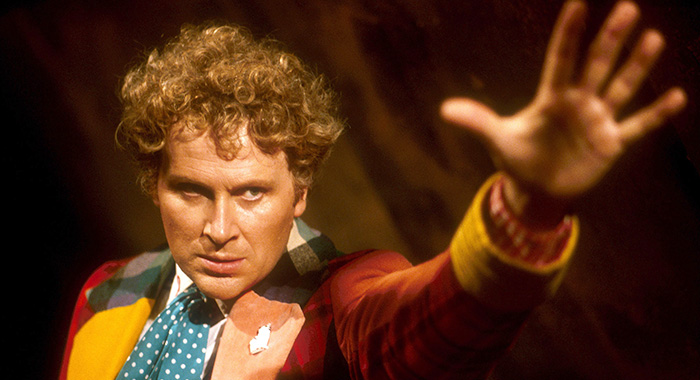
(Photo by BBC)
Known for: Hideous taste, a love for his own voice.
Highlight: His quiet dismay when he learns his companion Peri (Nicola Bryant) was killed due to a Time Lord plot in “The Trial of a Time Lord.”
Following the human and vulnerable Davison, Colin Baker was intended as a return to the crabby, spiteful Doctor of old. After a difficult regeneration, the Sixth Doctor tried to strangle his companion and chose an eye-sore patchwork coat as part of his costume. It is still hard to say which action was the greater crime. According to the actor, the intention was to mellow The Doctor out as he regained his human qualities. Sadly, audiences did not want to see an unpleasant Doctor and the BBC used the situation to put the show on an 18-month hiatus. It returned as “The Trial of a Time Lord” and its verdict cut Colin Baker’s time in the series short.
15. William Hartnell (classic series, seasons 1-4)
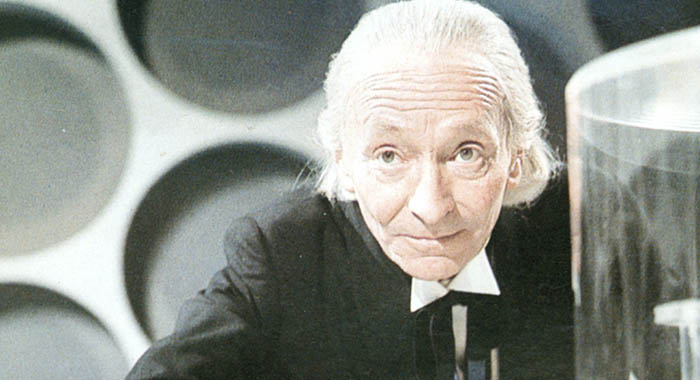
(Photo by BBC)
Known for: Flubbing lines, a quickness to anger.
Highlight: His farewell to his granddaughter, Susan, in “The Dalek Invasion of Earth” still holds up as one of the great moments in the series’ history.
Despite being first, William Hartnell stands apart from his successors. Designed as a foil for the series’ true main characters at the time, the First Doctor is often crabby, selfish, and heartless. Once his original companions left and he became the lead, many of his rough edges softened. In hindsight, the first few seasons of Doctor Who reveal how he came to love the Earth, but the much slower pace of the stories and mid-’60s production values make many of his stories difficult to enjoy. And while his performance as The Doctor is often enjoyable, it is a very different Doctor Who.
14. Jodie Whittaker (new series, seasons 11-13)
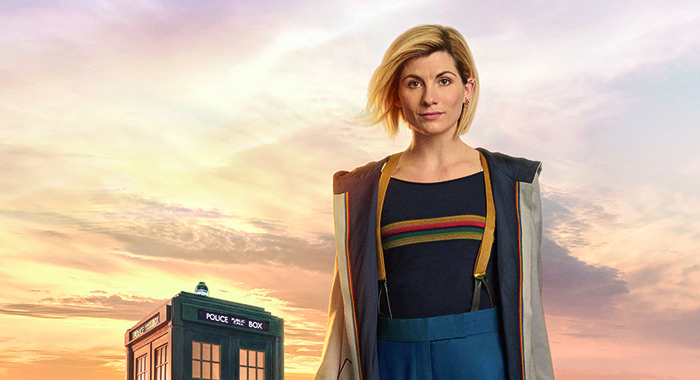
(Photo by BBC America)
Known for: Referring to her companions as her “fam.”
Highlight: Uniting disparate parts of herself to recover from the Master’s use of the Matrix on Gallifrey … and the word salad that immediately followed it.
After Peter Capaldi’s grumpy, grandfatherly Doctor, Whittaker debuted with a youthful vibe and a motormouth reminiscent of some of the other, more clownish predecessors. But clowning around wasn’t really the Thirteenth Doctor’s style. Sure, she enjoyed her fun – and getting lost in verbalizing her own thought process – but there was a passion (and lots of compassion) to this Doctor and her wanderings. Nearly all of that time was spent with the same trio of humans, suggesting this Doctor needed more of family unit than ever before. That direct support was important considering the discoveries she made about her past during this incarnation. Admittedly, the writing was not been on her side – leaving the character more of a muddle than she might otherwise be – but Whittaker’s Doctor approached all of her adventures with the sort of smile and care you want from the character.
13. Ncuti Gatwa (Disney+ series, seasons 1-2)
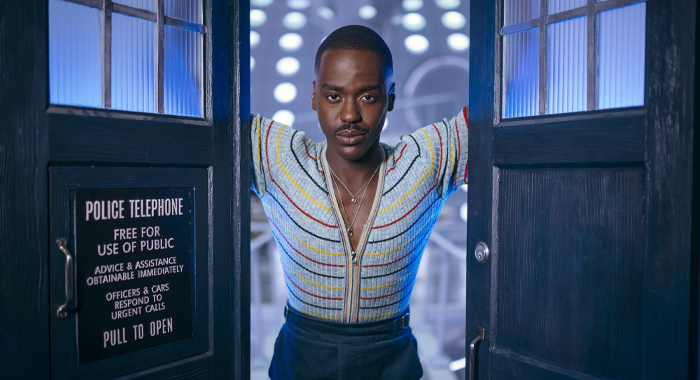
(Photo by Disney+)
Known for: Costume changes.
Highlight: The dawning and terrible realization he cannot help a group of people in “Dot and Bubble” because they don’t trust anyone dark-skinned.
Following the brief re-emergence of David Tennant as the Fourteenth Doctor, Gatwa arrived in the final 60th anniversary special, “The Giggle,” in an unusual way and has remained ever since. He is one of the rarer Doctor archetypes, the Dandy, but presents that in a very different fashion from the previous Dandy Doctor, Jon Pertwee — “fashion” being the key visual difference between them. Whereas the Pertwee Doctor had a specific style he altered via color and pattern choices, the Gatwa Doctor eschews a constant look in favor of clothes that more closely fit the destination of the TARDIS. Beyond clothes, though, he is far more emotional, tearing up throughout his first season. Which, to be fair, make sense, as this incarnation continues to process what the Thirteenth Doctor learned about their past, characterizing the collective whole as “an orphan” adopted by the Time Lords of Gallifrey. The result is a Doctor who tries to lead more from the gut than the mind in a collection of stories spearheaded by returning showrunner Russell T. Davies to varying degrees of success. As in Davies’ previous run, the best episode of season 1, “73 Yards,” ironically features The Doctor in a very limited capacity. Of course, with just 10 episodes of the Fifteenth Doctor available (an eleventh is due out this Christmas), it remains to be seen if the more emotional and dandy-ish elements of Gatwa’s Doctor will remain and where his place on the list will stabilize once his tenure ends.
12. Christopher Eccleston (new series, season 1)
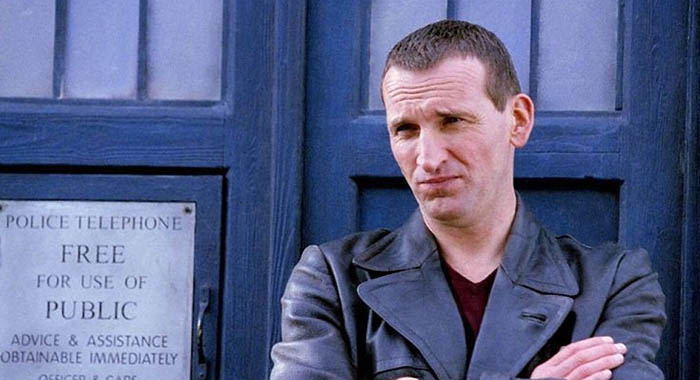
(Photo by BBC America)
Known for: A short life, exclaiming “fantastic!”
Highlight: Announcing his plans to rescue Rose Tyler (Billie Piper) and defeat the Daleks in “The Parting of the Ways.”
The biggest problem with Christopher Eccleston as The Doctor is that we barely got to know him. A prematurely issued BBC press release revealed the actor would leave the series shortly before the revived program debuted. In the States, the series failed to find a broadcaster willing to carry it until after he was gone. And then there is the show itself. Still finding its footing, it goes from the highs of dealing with The Doctor’s PTSD to the lows of farting aliens assuming control of 10 Downing Street. All the while, the Ninth Doctor manically runs from situation to situation, madly grinning with his companion hand-in-hand. His one year of episodes only offers a glimpse of what the actor could have done with it if he had stayed the traditional three years. As we’ve learned in recent years, the nature of the production made it impossible for the actor to continue, but at least he has returned to the part via the Big Finish audios.
11. John Hurt (new series, 50th anniversary specials “The Day of The Doctor,” “The Time of The Doctor”)
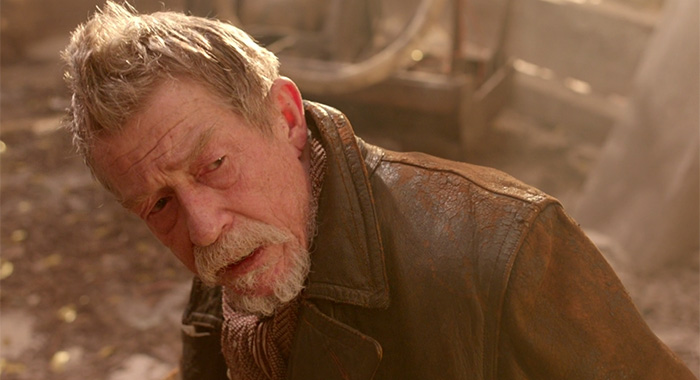
(Photo by BBC America)
Known for: Facing the end of the Time War, proper use of a sonic screwdriver.
Highlight: His relief as he realizes he doesn’t have to destroy his homeworld in “The Day of The Doctor.”
Perhaps an unfair ranking as the War Doctor only appeared in the 50th anniversary special, but Hurt’s few moments as a Time Lord are nothing short of magical. According to early storyboards, Eccleston’s Doctor was going to be revealed as the incarnation responsible for Gallifrey’s destruction. But his (understandable) reticence to return to the part led to Hurt becoming a secret regeneration in The Doctor’s life cycle, presenting all the qualities fans would expect from The Doctor on the worst day of his life. From Hartnell’s crabbiness to Davison’s vulnerability, he also echoed the classic series Doctors, becoming their avatar in one of the grandest of Doctor Who celebrations to date.
10. Jo Martin (new series, season 12 episodes “The Fugitive of the Judoon,” “The Timeless Children”)
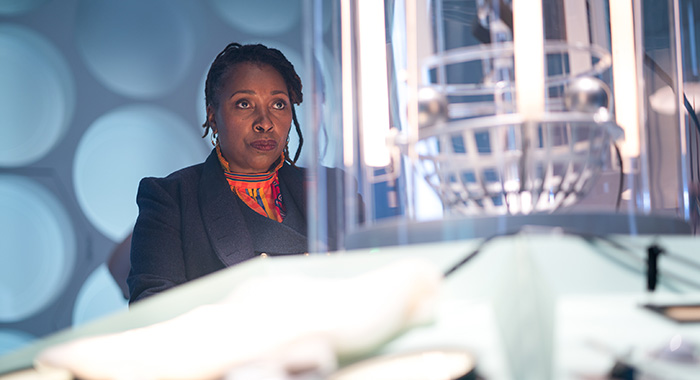
(Photo by James Pardon/BBC Studios/BBC America)
Known for: Appearing when you least suspect it.
Highlight: Revealing to the Thirteenth Doctor (Whittaker) that her favorite part in any encounter is saying “I am The Doctor.”
Jo Martin surprised everyone when her kind-hearted Gloucester tour guide, Ruth Clayton, turned out to be an incarnation of The Doctor from a previous life cycle, seemingly scrubbed from history by the Time Lords and The Doctor’s own mind. Now dubbed “The Fugitive Doctor,” Martin’s Time Lord is filled with a self-confident swagger that usually comes off as misplaced bravado in their other incarnations. But here it enhances one of the most steely-eyed versions of the character ever seen. “Time’s Champion” and the “Time Lord Triumphant” make more sense when you think she’s whispering thoughts into her successors’ ears. Despite only appearing on screen for 15 minutes, the Fugitive Doctor made a huge impression and Martin’s debut left us wanting the rest of season 12 to directly revolve around the Thirteenth Doctor’s search for this missing part of herself.
9. David Tennant (The 60th Anniversary Specials)
Known for: Looking a lot like a previous Doctor
Highlight: Reconnecting with former companion Melanie Bush (Bonnie Langford) at UNIT and, later, at a Noble family garden party.
As the Fourteenth Doctor is a distinct and true incarnation of The Doctor (versus the “10.5” Doctor from “Journey’s End” and the 2009 specials), Tennant earns his first spot on this list, albeit admittedly lower in rank by virtue of spending just three specials with this version of the character. Reconstituted into a previous form and persona for reasons yet to be successfully explained, the Fourteenth Doctor is very similar to the two Tenth incarnations, but the subtle differences are there. He’s willing to say he loves people, something both Tens emphatically could not do. He is also, in many ways, The Doctor in retreat following some very difficult centuries. As a result, he denies a lot of his damage and resorts to his “allons-y” catchphrase to avoid thinking about, well, anything but adventuring. For a time, anyway, as he is now taking the slow but timey-wimey road to recovery. And since the Fourteenth Doctor is still staying with Donna while his next incarnation flies around space and time, it is possible Tennant will put the coat on again. Something, we imagine, his most ardent fans hope for every day.
8. Sylvester McCoy (classic series, seasons 24-26)
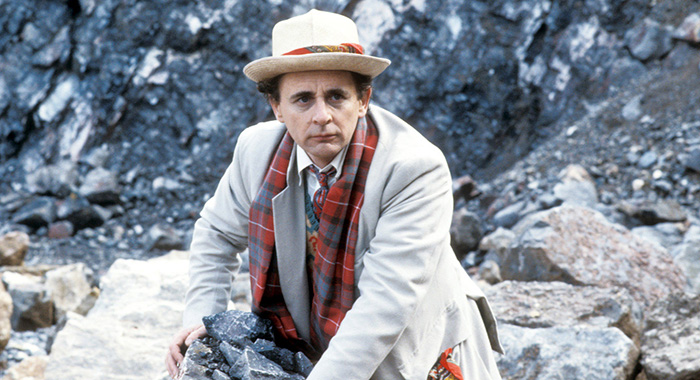
(Photo by BBC)
Known for: Spoon playing; a panama hat.
Highlight: Coolly offering the Daleks the means of their own destruction in their final classic series appearance, “Remembrance of the Daleks.”
Initially presented as a clown, McCoy’s Doctor makes a startling transformation into a master manipulator by the end of the classic series’ final season. Warm and nurturing one moment, the Seventh Doctor could turn on his closest allies — but only if it meant furthering his long-term goals. McCoy reflected the change in the final season with a darker coat and a deepening of his voice, suggesting The Doctor was something older and more alien than we previously thought. Sadly, these ideas were never fully developed as the show entered its long hiatus.
7. Paul McGann (the TV movie)
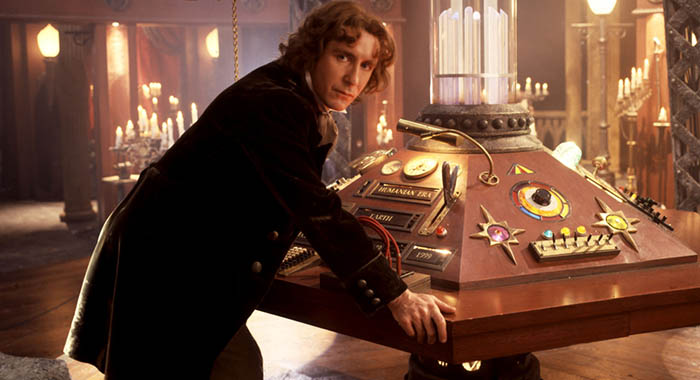
(Photo by BBC)
Known for: Kissing girls, claiming to be half human on his mother’s side.
Highlight: Remembering his companions in “The Night of The Doctor.”
Unlike Eccleston and Hurt, Paul McGann’s brief tenure as The Doctor led to a very long association with the character and the most tantalizing of “what ifs” surrounding Doctor Who. As part of an attempt to import the series to the States in 1996, McGann was the first Doctor viewed consciously for his romantic appeal. And he plays that new dimension for The Doctor brilliantly. Sadly, his TV movie is one of the worst Doctor Who episodes ever produced, but it suggests an appealing, brilliant, and vulnerable Doctor you wanted to spend time with every week. McGann would build on the Eighth Doctor via numerous audio adventures, culminating in his brief return to screens in the short prelude scene, “The Night of The Doctor.”
6. David Tennant (new series, Season 2-4)
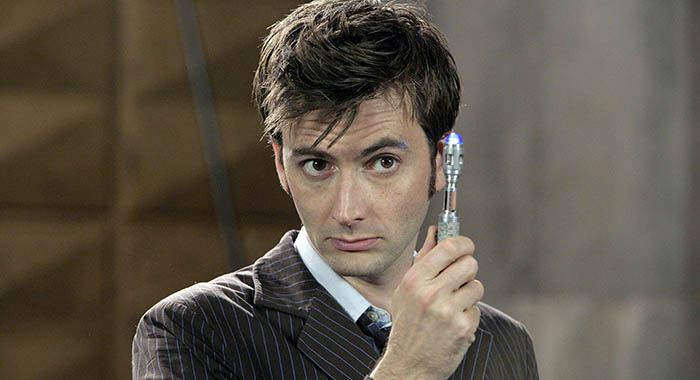
(Photo by BBC America)
Known for: Kissing girls (and at least one boy), calling time a “ball of wibbley-wobbly, timey-wimey stuff.”
Highlight: His determination while punishing the aliens who forced him to return to his Time Lord ways in “The Family of Blood.”
The most popular of the new series Doctors benefits from some of the best scripts ever written in the show’s long history. From “School Reunion” to “Blink” to the final moments of “Journey’s End,” the Tenth Doctor revealed previously unseen depths in The Doctor’s psyche, none more startling than his deeply rooted fear of regeneration and losing his Tennant-ness. He fulfilled the potential for romance first glimpsed with McGann, but took it to a whole new level with his long coat and rail-thin build. He also built on the weariness of Eccleston, becoming “the man who regrets” in the process. And in his wake are plenty of fans who regret that he ever left the show.
5. Jon Pertwee (classic series, seasons 7-11)
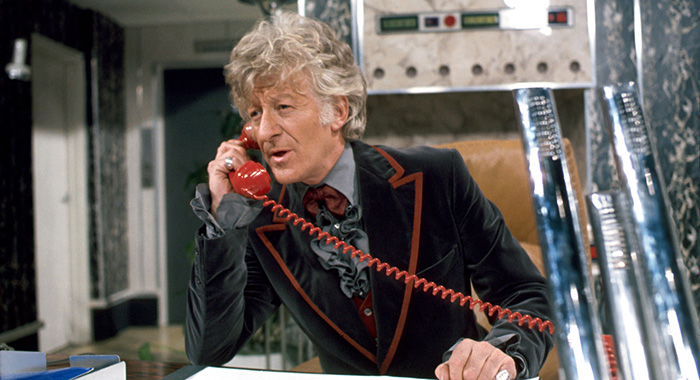
(Photo by BBC)
Known for: Velvet jackets; Conjuring tricks
Highlight: Revealing a story from his childhood to calm his companion in “The Time Monster.”
Theatrical, a dandy, and yet more contained than just about any other Doctor, Pertwee used the role to break away from his reputation as a variety entertainer and played the part straight. In his era, The Doctor became a patrician hero. Exiled from Time Lord society and banned from traveling through time, he found a family with the United Nations Intelligence Taskforce. He could quarrel with them as intensely as the enemies they fought together, but it only reflected his fierce dedication to truth and a sense of righteousness beyond the self. At the same time, he could still have fun building gadgets and special cars, but it reflected as much about Pertwee’s own personality as it did the Third Doctor’s.
4. Peter Capaldi (new series, seasons 8-10)
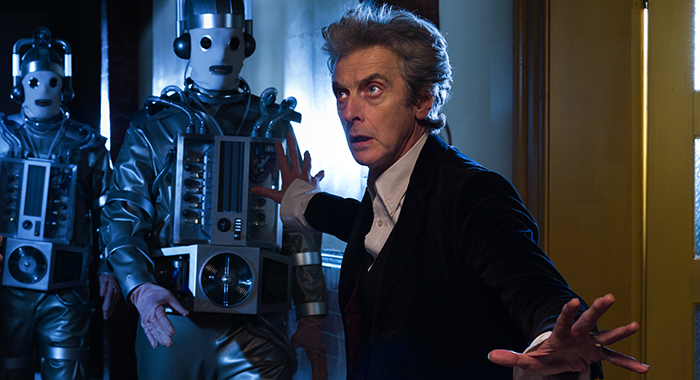
(Photo by BBC America)
Known for: Scottish accent, ordering people to shut up.
Highlight: His proclamation that “I’m an idiot in a box, passing through, helping out, learning” from “Death in Heaven.”
Peter Capaldi’s Twelfth Doctor strikes an imposing figure as the show’s attempts to conjure up a regeneration closer to Hartnell finally paid off. Often as crabby and menacing as the First Doctor — and as a careless and self-involved as the Sixth — Capaldi also illustrated what the part looks like when a lifelong fan of the show, who also happens to be an Oscar-wining actor, takes possession of the TARDIS. Admittedly, a number of the storylines during his tenure proved underwhelming, but Capaldi’s performance never ceased to be a delightful return to the days when The Doctor was unpredictable and scary.
3. Matt Smith (new series, seasons 5-7)
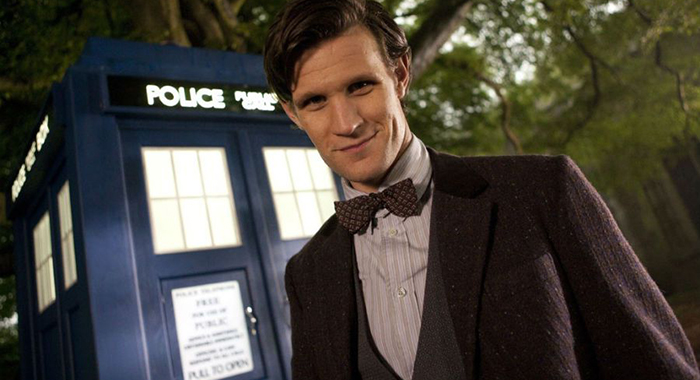
(Photo by BBC America)
Known for: Bow ties, devotion to friends.
Highlight: Giving Vincent Van Gogh a moment of peace in “Vincent and The Doctor.”
Unlike Capaldi and Tennant, Smith grew up without Doctor Who. Nevertheless, he found the quirky charm and ancient gravitas of the character so quickly you would think he has vivid memories of the show from when it was in black and white. Choosing to dress and model the character after an eccentric professor, Smith’s mile-a-minute speech pattern and frantically gesticulating hands led the series to its greatest successes in the States. Both young and old all at once, Smith’s Doctor could make you laugh and break your heart within moments.
2. Tom Baker (classic series, seasons 12-18)
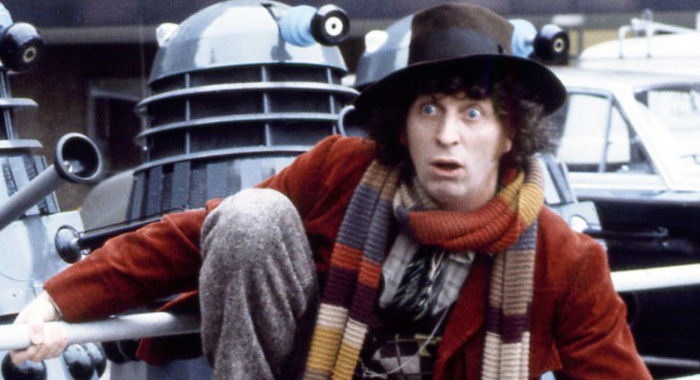
(Photo by BBC)
Known for: A very, very long scarf, Jelly Babies.
Highlight: Shouting “Cockneys!” when asked which tribe inhabits London at the beginning of “The Talons of Weng-Chaing.”
It is fair to say Tom Baker was born to play The Doctor. He’ll also tell you he never really stopped. Giving The Doctor some of his own alien mannerisms and vocal eccentricities, he became the definitive incarnation of The Doctor for decades. His place is well-deserved. Even in the worst stories of his era, Baker’s commitment to an outwardly flippant, but deeply concerned children’s hero never wavers. He also benefited from the continual presence of the show’s best writer, Robert Holmes, who either wrote or rewrote most of the Fourth Doctor tales from 1974 to 1976.
1. Patrick Troughton (classic series, seasons 4-6)
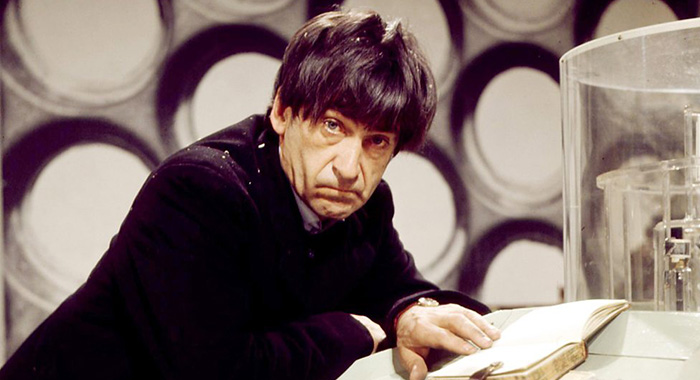
(Photo by BBC)
Known for: Getting his companions to run, check trousers
Highlight: Calming his new friend Victoria with the knowledge that “no one else in the universe can do what we do” during a tense night in “The Tomb of the Cybermen.”
Except for Hartnell, all of the actors who have played The Doctor owe a tremendous debt to Patrick Troughton. Besides being the first person to ever face the scrutiny and potential ridicule of Doctor Who fans by replacing the lead, he also established much of The Doctor’s core persona. The indignant retorts, puckish retreats and grave proclamations of doom uttered by his successors involuntarily — or voluntarily in some cases — echo his performance. With the Second Doctor, we meet the meddler in time who wants to see the universe, learn. and help out. But unlike some of his successors, Troughton’s Doctor was unafraid to reveal he was out of his depth. Some of the best moments in a Troughton story come from his confidence being shattered when he realizes he cannot rewire a rocket or complete a math quiz. At the same time, he could recover that confidence and win the day. Often confounding his enemies and allies alike, he could also center himself to reveal a steely intelligence or a surprising warmth. All of it was delivered with a slight tobacco quality in his voice and a twinkle in his eye. Truly the sort of person you would want to see step out of the TARDIS.
Who do you think should take over next? Tell us in the comments! Comment Here
The 2024 Doctor Who Christmas Special, titled “Joy to the World”, will be available to watch on Disney+ on December 25, 2024.





